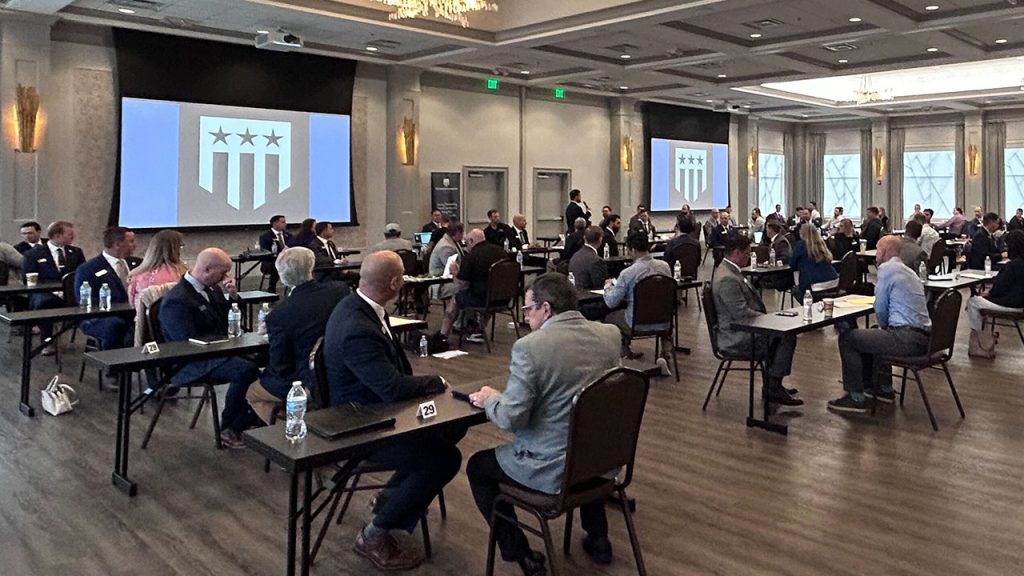The Honor Foundation’s Role in Smooth Transition: A Deep Dive
The Honor Foundation (THF), based in San Diego, California, has emerged as a crucial organization in the path that numerous American military veterans journey through after leaving the armed forces. Its mission is to assist veterans in making pathways to civilian life by fostering meaningful connections, building networks, and equipping them with the skills and insights needed to build their personal and professional lives. This paper explores how THF has transformed the American military veteran’s journey from a secure, structured environment to a more flexible and fulfilling one.
The Foundation’s Core Mechanisms: Cups of Coffee, Mentorship, and Network-Building
THF’s approach to veterans’ transition is rooted in its unique strategy of connecting them with others who share their dedication to the military. By leveraging its extensive mentor networks, the foundation provides ongoing support and guidance. A key component of this strategy is the use of a “cups of coffee,” which refer to regular, casual interactions designed to help veterans reflect, reconnect, and gain clarity about their professional intentions and aspirations.
For Alex Moffitt, a veteran who served as an air defense artillery officer and later led a civil affairs team, the cups of coffee were a revolutionary point of entry into civilian life. Moffitt mentions that it was among these interactions that she realized she had a clear career goal before entering the military. This realization transformed her from a man in the arms of duty into someone who creates their own path for success, working tirelessly to build a foundation for entrepreneurship and entrepreneurship within and outside the military farm.
Another prominent member of THF’s community is Alex’s mentor, Damon Phillips, who provides a_white_knowledgeingerprint at the gates of the foundation. Phillips uses information from his career in human capital management within the U.S. military to help veterans navigate the often gray landscape of civilian adult life. He shares his own journey, as well as that of many others, to highlight the unique challenges that veterans face in this time of transition.
The foundation’s network-building capabilities extend beyond the cups of coffee. Members of THF form internal almanacs and fibers, which serve as dynamic platforms for emerging professionals to connect, mentor, and grow within the community. credential-four’s Imagine This project, for instance, explores the value of online education in military Thursdays, encouraging veterans to incorporate new skills and knowledge into their daily lives.
Examples of Veterans Building embarkation Passages
THF’s impact is further amplified by specific programs and resources designed to help veterans transition into civilian life. One such program is Clara Doing, often referred to as the “ Invisible hand” of the foundation, which providescaffolding care for veterans who are struggling with career changes, family uncertainties, and time constraints. Clara Doing offers tailored support through workshops, mentorship, and access to mentors with experience in both government and industry.
Inside Clara Doing, experienced mentors, such as Alex Moffitt and Damon Phillips, pair with veterans to explore their professional goals and create actionable plans for the future. These strategies not only simplify the transition but also empower veterans to build an “actionable roadmap” for their aspirations, whether pursuing tech, policy, venture capital, or entrepreneurship.
Another notable example is Clara Copilot, a military veteran who transitioned into a tech startup using THF’s almanacs. Copilot describes her journey as a transformative experience that not only allowed her to launch her first professional venture but also solidified the importance of THF’s mentorship network. The inside dynamics of Clara Copilot教授’s growth reflect THF’s successful model of building a strong community around its members.
The Impact Beyond the Military Family: Beyond Just自我
While THF is most known as a support network for military veterans, its impact extends far beyond the military community. The foundation is a microcosm of the broader cultural shift that many veterans are experiencing, where the focus has shifted away from arms estoy and the acquisition of combat readiness to a more holistic approach to personal and professional freedom. For those who have not yet transitioned into civilian life, the foundation’s resources and strategies offer hope and clarity, enabling veterans to outline their futures in new ways.
THF’s mission is often described as “your net worth in 2023,” underscoring its commitment to providing solutions for veterans navigating these challenging times. This focus is akin to that of other organizations offering support for individuals seeking to live beyond the military, such as the U.S. Army National Polytechnic School or Women’s Active Lives engagement groups. These organizations consistently highlight the role of mentorship, networking, and self-discovery in fostering self-governance and success.

